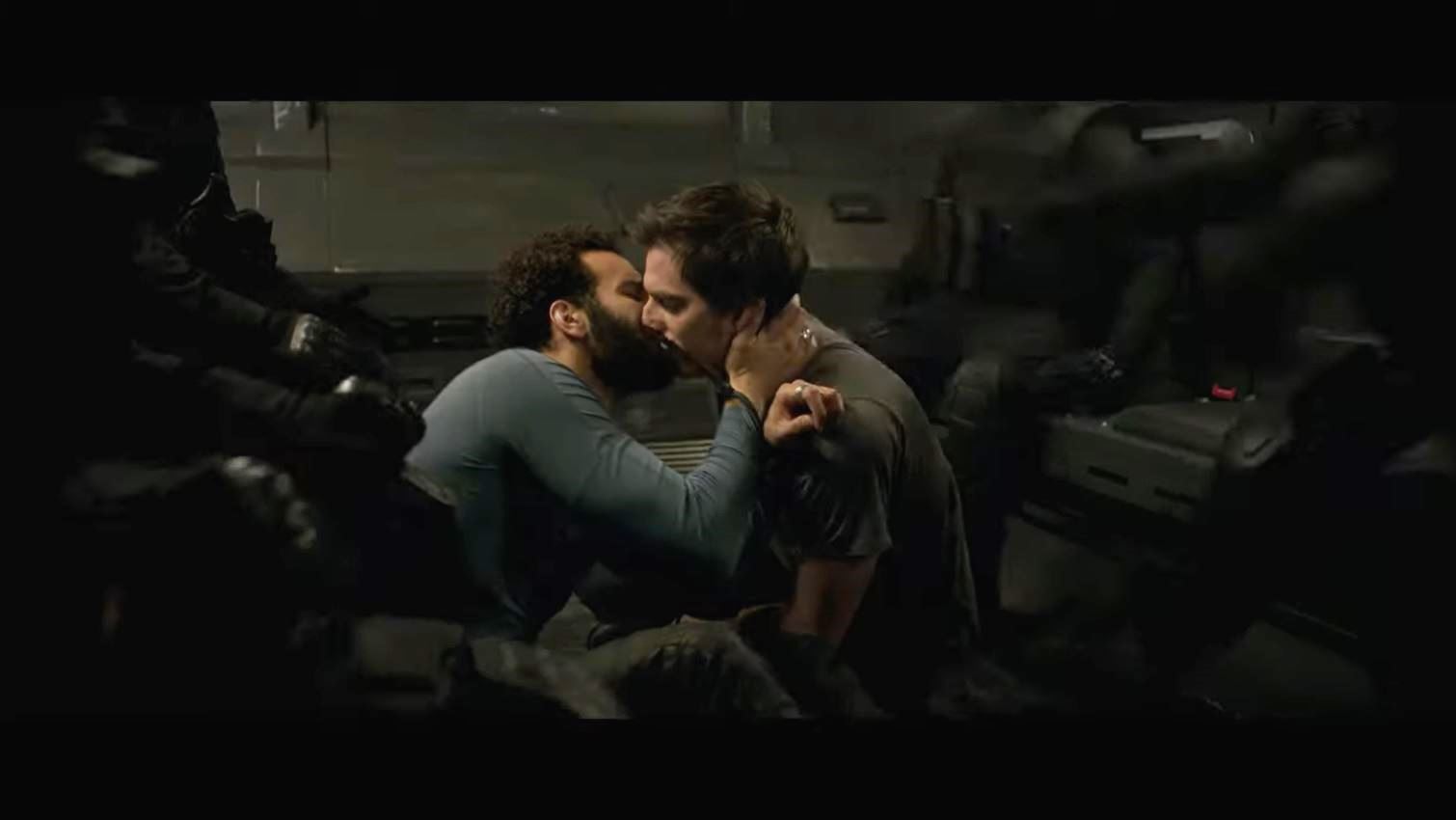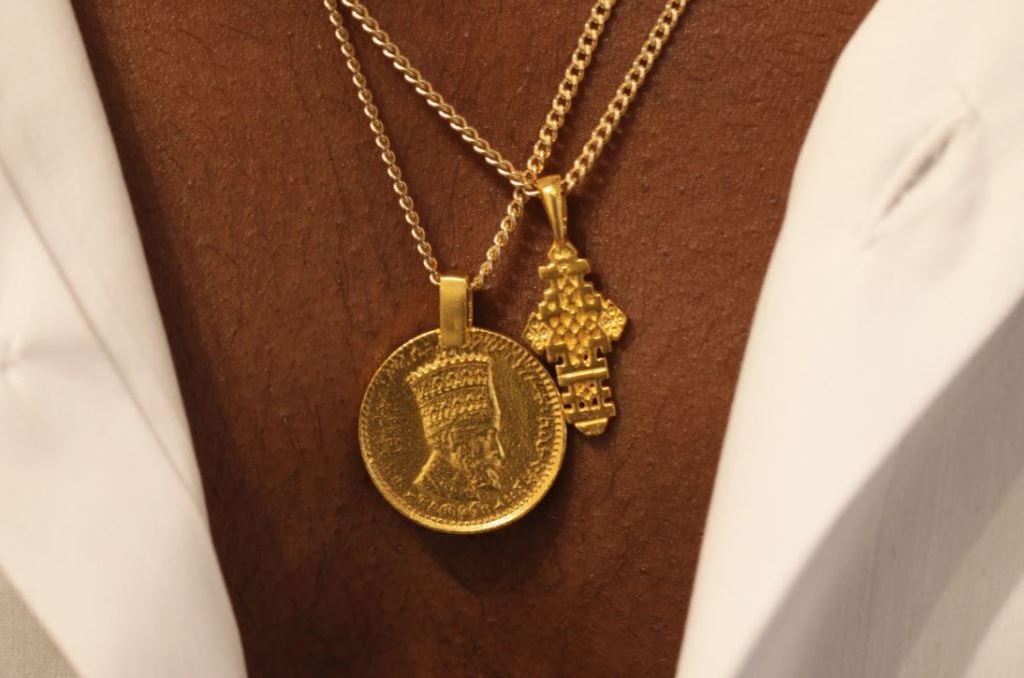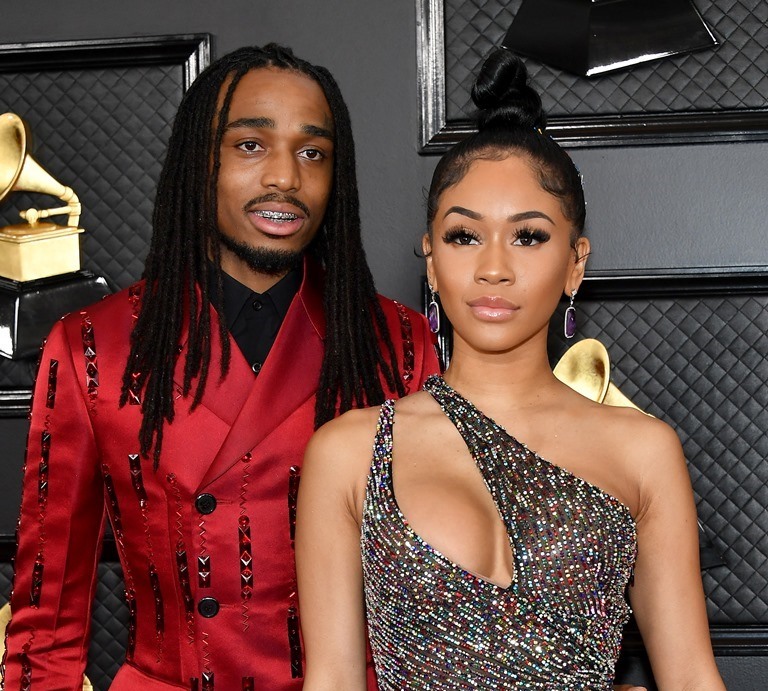The Old Guard challenges superhero movies to do better



Remember when Avengers: Endgame came out (just one year ago!) and co-director Joe Russo was talking up the movie’s big gay moment (BGM) in which he cameos as a grieving widower who reveals, in Steve Rogers’s group therapy, that he went on a date with another man. The first gay Marvel character! headlines screamed, and you could feel the self-satisfaction oozing off of Russo when he talked about the importance of seeing him, as one of the filmmakers, playing Marvel Studio’s first openly gay character—because we all know Bucky Barnes ain’t straight under that hair—to show how committed they are to depicting LGBTQ+ characters on screen. In a thirty second cameo. Playing a character with no name. Joe Russo previously cameoed in Captain America: Civil War as a dead body. Was it also important he represent the deceased on screen?
Look, the BGM in Endgame isn’t exactly nothing, but it IS an easily excised moment that was removed from many international versions of the film. The scene was, in fact, DESIGNED to be easily removed so as not to offend those countries that are still imprisoning and executing people for being gay. And that has, to date, been the sum total of LGBTQ+ representation in superhero movies. Queerness is hinted at, interpreted by fans from subtext, and left to the domain of fanfiction. When there is a BGM in a superhero movie, it is like the moment in Endgame: easily removed. Queer representation and queer love are never essential to mainstream cinematic superhero storytelling. Even Wonder Woman, with its island of women, limits its depiction of those women in love to small asides and easily extracted frames.
But then The Old Guard dropped on Netflix and completely changed the game. Gina Prince-Bythewood’s superhero movie is entering its second weekend as the #1 movie on Netflix, and it features a prominent queer romance, with one of the most passionate declarations of love in recent cinematic memory smack dab in the middle of the movie. Nicky (Luca Marinelli) and Joe (Marwan Kenzari) have been lovers for a millennium and their passion has not faded, as evinced by Joe’s speech in the armored van after they have been captured. When one guard mocks them for being boyfriends, Joe replies, “You are a child. An infant.” His eyes are not hateful or angry, but pitying. The guard, chastened, looks embarrassed for his own homophobia. Joe then delivers his monologue about his love for Nicky, who slowly straightens and relaxes after being beaten, basking in his lover’s appreciation and belief.
This is the kind of scene we usually see between hetero romantic partners in action movies, when the Big Tough Hero says something nice about The Girl and she softens, momentarily revealing her femininity (because she’s usually some kind of ice queen bitch before the BTH uncovers her womanly side with his ardor and life-saving ways). And it comes smack dab in the middle of the movie, when there is still plenty of time for savvy viewers to fear the dreaded “bury your gays” trope rearing its ugly head. Indeed, I watched the back half of The Old Guard petrified for Nicky and Joe, because when there is open queer love in film and television, someone usually dies (the trope recently reared its head in graphic novel adaptation The Umbrella Academy, in which Klaus’s lover and fellow soldier dies in Vietnam). That trope is so prevalent that even in a movie about immortals I was worried one or both gay men would die.
But Nicky and Joe live to fight another day. They defy the trope, but it’s not just their survival that marks them as unique in genre storytelling, because their relationship is seeded into The Old Guard so purposefully that they cannot be removed from the movie to appease more homophobic countries. Perhaps one version of The Old Guard could remove the armored truck scene, but Nicky and Joe are in constant contact throughout the movie, their casual, open affection apparent from the beginning. You couldn’t cut every instance of physical affection between them without removing the characters entirely, and then The Old Guard wouldn’t make any sense, because the end of the movie hinges on Andy going to rescue them, so without Nicky and Joe, Andy has no reason to do anything and the movie is over. You literally cannot have The Old Guard without Nicky and Joe, and the movie is structured that way deliberately.
The Old Guard is now forcing superhero movies to do better. You can’t brag about your positive queer representation that is just some blink-and-you’ll-miss-it moment that can be easily cut from the film. Not when an internationally successful superhero movie is out here with fully one of the most romantic movie speeches of all time—seriously, I put Nicky’s speech up there with “As you wish”, “We’ll always have Paris”, and “Not even at all”—and it is performed between two integral characters who cannot be deleted from the film. Nicky and Joe are part of The Old Guard, their love is a foundation text for how this group of immortals functions, and they are so thoroughly grounded in the story that to remove them is to destroy the logic of the story itself.
After Nicky and Joe, there is no excuse for other superhero movies to back down from open, meaningful queer representation. The Old Guard is tremendously popular, and while there probably is somebody somewhere furious about Nicky and Joe, the reception of these two characters has been overwhelmingly positive. People WANT to see queer characters and their love stories on the big screen, and The Old Guard proves it can be done in ways that are meaningful and not just one-off cameos that amount to nothing within the larger scale of the story. The Old Guard is making other superhero movies, with their easily edited BGMs, look like the infants in the room.

